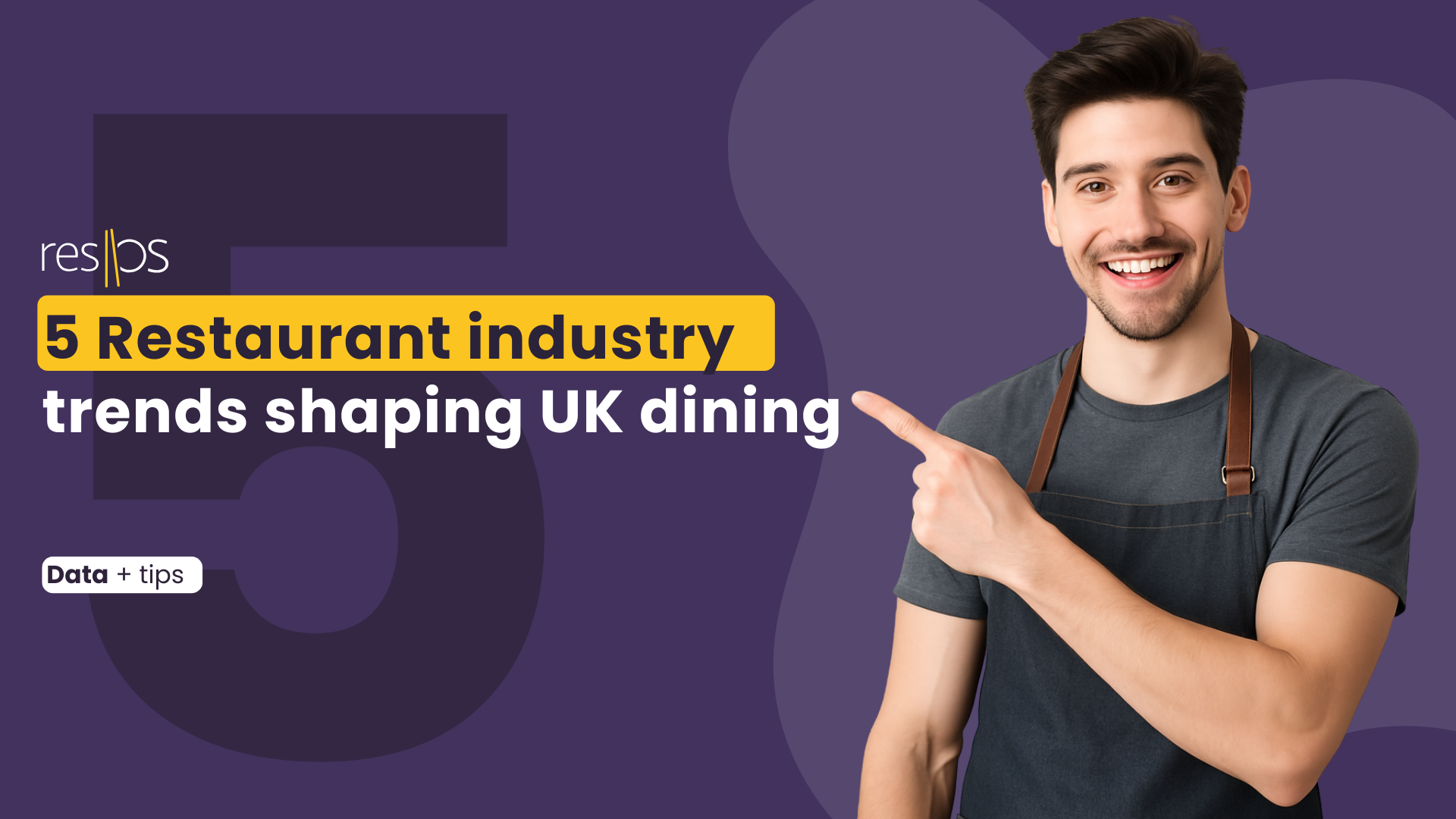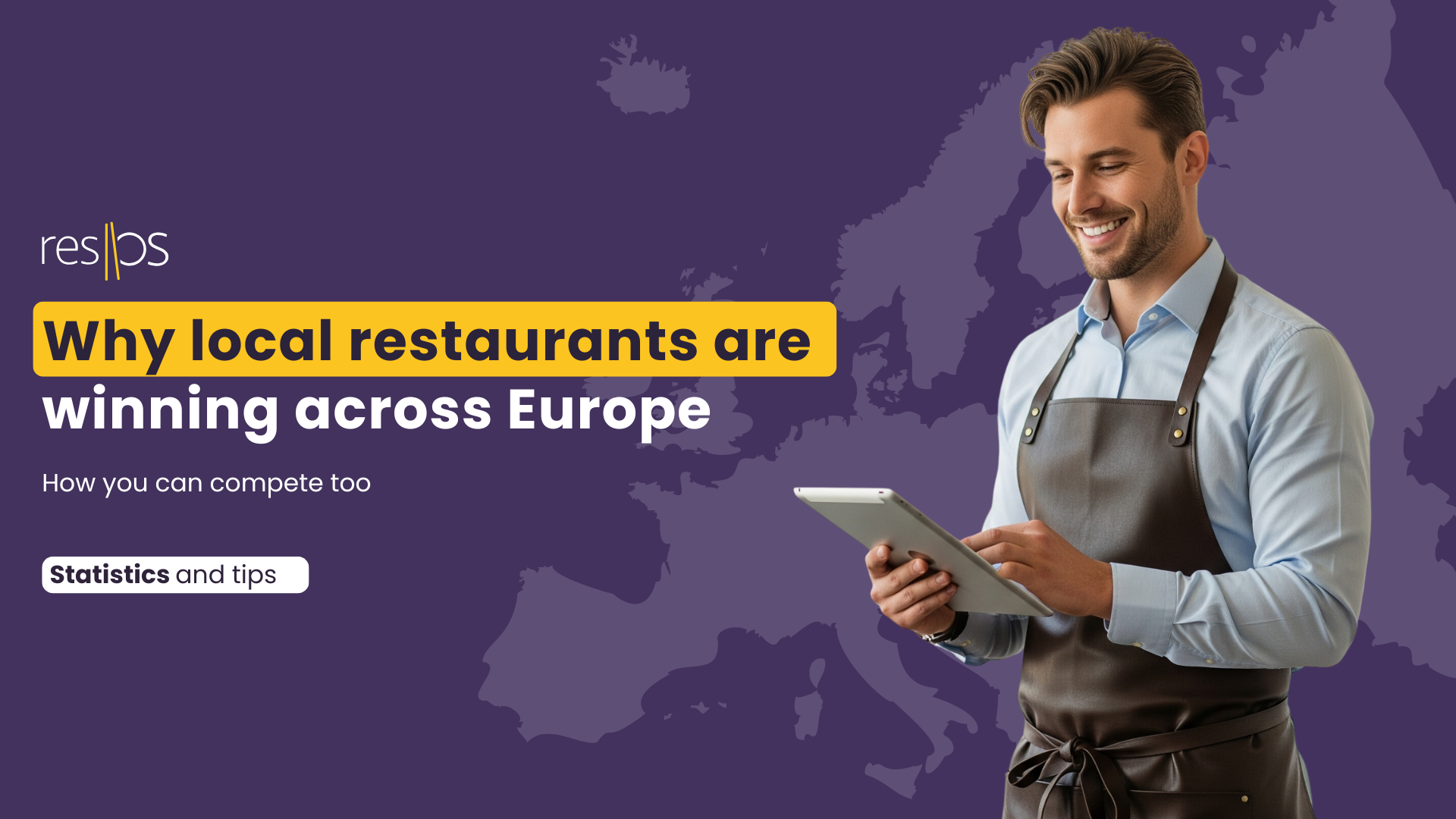
Are you looking to spice up your restaurant’s appeal and boost revenue? Well, event planning might just be your golden ticket! But, let’s face it, managing events in a restaurant setting can be as tricky as juggling knives. 🍽️ Don’t worry, though! We’re diving into how technology, can make this a breeze.
What is restaurant event management?
Think about it: your restaurant buzzing with laughter from a birthday party, clinking glasses from an anniversary dinner, or the lively chatter of a corporate event. Hosting these events isn’t just about filling seats; it’s about creating an atmosphere that draws people in and keeps them coming back.
Event planning in restaurants: Ideas and template
Event planning is a fantastic way for restaurants to create memorable experiences, increase bookings, and attract new customers. Whether you’re organizing wine tastings, themed dinners, live music nights, or private parties, having a solid plan is essential.
Why event planning matters for restaurants
Events drive engagement, build community loyalty, and generate extra revenue. They allow restaurants to showcase their unique atmosphere, special dishes, and hospitality.
Some benefits of restaurant events:
- Attract a new clientele
- Encourage return visits
- Increase average spend per customer
- Strengthen your brand identity
NEW: Venjue x resOS Integration for seamless event planning
We’re very happy to announce that Venjue has teamed up with resOS!
If you’re managing events via the Venjue app, you can now connect it directly to your resOS restaurant booking system.
This powerful integration ensures that no overlapping bookings occur during your events — keeping operations smooth and stress-free.
📲 Plan events in Venjue → Block tables in resOS automatically.
✨ Learn more about the integration and how to activate it
Understand your audience
First things first, know your customers. What do they like? What are their interests? Use your customer data to tailor events that resonate with your regulars or attract a new crowd. Technology like CRM systems can help you analyze customer preferences based on their order history and feedback.
resOS is a technology that collects customer data and manages bookings, allowing you to understand and cater to your audience’s preferences effortlessly
Get to know your diners like never before
Collect diner insights that help you deliver better service and boost loyalty. With resOS, you can easily track guest preferences and booking history—so every visit feels personal.
Align with your restaurant brand
Make sure your events align with your restaurant’s theme and brand. Whether it’s a wine tasting that complements your Italian cuisine or a jazz night that fits your restaurant’s retro vibe, consistency is key. Your events should feel like a natural extension of what your restaurant stands for.
Marketing and promotion
Use digital channels like social media, your website, and email marketing to promote your events. Tools like marketing automation can target your efforts more effectively, reaching the right audience. Consider collaborations for co-branded marketing, especially if you’re hosting events with well-known personalities or themes.
Want to know more about how to promote your restaurant on Social Media? Read here
Event ideas for bars, cafés, and restaurants
- Tasting menus and food pairings:
- Themed tasting menus: Offer a series of specially curated tasting menus based on a specific theme, such as international cuisines, seasonal ingredients, or culinary techniques.
- Wine pairings: Create your dining experience by offering specially selected wines to complement each course of your tasting menus.
- Chef’s table events:
- Exclusive chef’s table: Host intimate dinners with limited seating, allowing guests to enjoy a personalized culinary experience and interact directly with the chef.
- Live cooking demonstrations: Invite your chef to demonstrate their culinary skills in front of an audience, providing insights into their cooking techniques and passion for food.
- Interactive cooking classes:
- Themed cooking classes: Organize hands-on cooking classes focused on specific cuisines, techniques, or seasonal ingredients, allowing guests to learn new culinary skills.
- Pair cooking classes with wine tastings: Combine cooking classes with wine tastings to create an immersive and engaging dining experience.
- Live music and entertainment:
- Weekly music nights: Host regular acoustic performances, open mic nights, or live music sessions to create a lively atmosphere and attract music enthusiasts.
- Themed entertainment events: Organize themed evenings with specific genres of music, dance performances, or themed entertainment acts.
- Networking events and special occasions:
- Business networking events: Cater to professional groups and organizations by hosting networking events with a focus on business connections and collaboration.
- Private parties and celebrations: Offer your restaurant as a venue for private parties, birthday celebrations, or corporate events, providing a unique and memorable dining experience.
- Sustainable and local events:
- Farm-to-Table dinners: Partner with local farms to source fresh, seasonal ingredients and showcase the concept of farm-to-table dining.
- Chef’s challenge with local ingredients: Engage your chef in a competition using locally sourced ingredients to create innovative and delectable dishes.
- Educational and community engagement:
- Foodie workshops and seminars: Organize workshops and seminars on culinary topics, nutrition, food pairing, and wine appreciation.
- Charitable events and fundraisers: Partner with local charities and organizations to host fundraising events, donating a portion of the proceeds to support their causes.
- Holiday and festive celebrations:
- Themed holiday menus and décor: Transform your restaurant into a festive atmosphere with themed holiday menus and décor to cater to special occasions.
- Special occasion desserts and drinks: Create unique dessert menus and signature cocktails for major holidays and events to enhance the dining experience.
- Engaging events for customer interaction
- Open mic nights: Combine live music with a competitive edge.
- Karaoke nights: A fun way to engage customers and offer a lively atmosphere.
- Game nights: Board games or trivia nights can attract a diverse crowd.
- Kid-friendly events and activities:
- Children’s cooking classes: Organize fun and educational cooking classes for kids, teaching them basic cooking skills and introducing them to various cuisines.
- Themed children’s parties: Host themed children’s parties with age-appropriate activities, such as face painting, balloon animals, or mini cooking demonstrations.
Marketing strategies for restaurant events
Use existing channels: Leverage the power of your existing marketing channels. Utilize your social media, website, and email lists to promote your event space. Sharing engaging content that showcases your space in action can significantly boost interest and bookings.
Present your uniqueness: Highlight what sets your restaurant apart. Whether it’s a signature dish, the ambiance, or unique event concepts, make sure to communicate these unique selling points to your audience.
Reach out to past guests: Don’t forget the power of repeat business. Reach out to customers who have previously hosted or attended events at your restaurant. They are more likely to book again and can become valuable advocates for your venue.
Tech: your planning powerhouse
Ditch the old pen and paper. Modern technology streamlines your event planning, making it efficient and error-free. 🌐
Benefits of implementing technology systems into your event planning:
🚀 Streamlined management: Keep track of every detail effortlessly.
⏰ Time-saving: More time to devote to your guests.
✔️ Accuracy: Minimize manual mishaps.
✨ Enhanced experiences: Smooth bookings, personalized services – customers love these!
Ready to simplify your restaurant bookings?
Join thousands of restaurants using resOS to save time and keep bookings organized.
How to organize restaurant event management?
Summing up, we will now guide you through these step-by-step instructions on how to do it efficiently.
Choose the right software: Implement event management software tailored for the restaurant industry. This software should streamline documentation, task management, communication, booking, and organization.
Understand event documents: Use tools like banquet event orders (BEOs) and professional proposals. Automate and template these documents for efficiency.
Train your co-workers: Ensure your team is well-trained and understands their roles in event execution. High-quality service is crucial for a successful event.
Implement effective communication: Maintain clear communication channels with event planners, clients, vendors, and staff. This is key to a smooth event management process.
Streamline payment and booking process: Offer seamless online booking and payment processing. Look for systems that manage payments, invoicing, and bookings efficiently.



